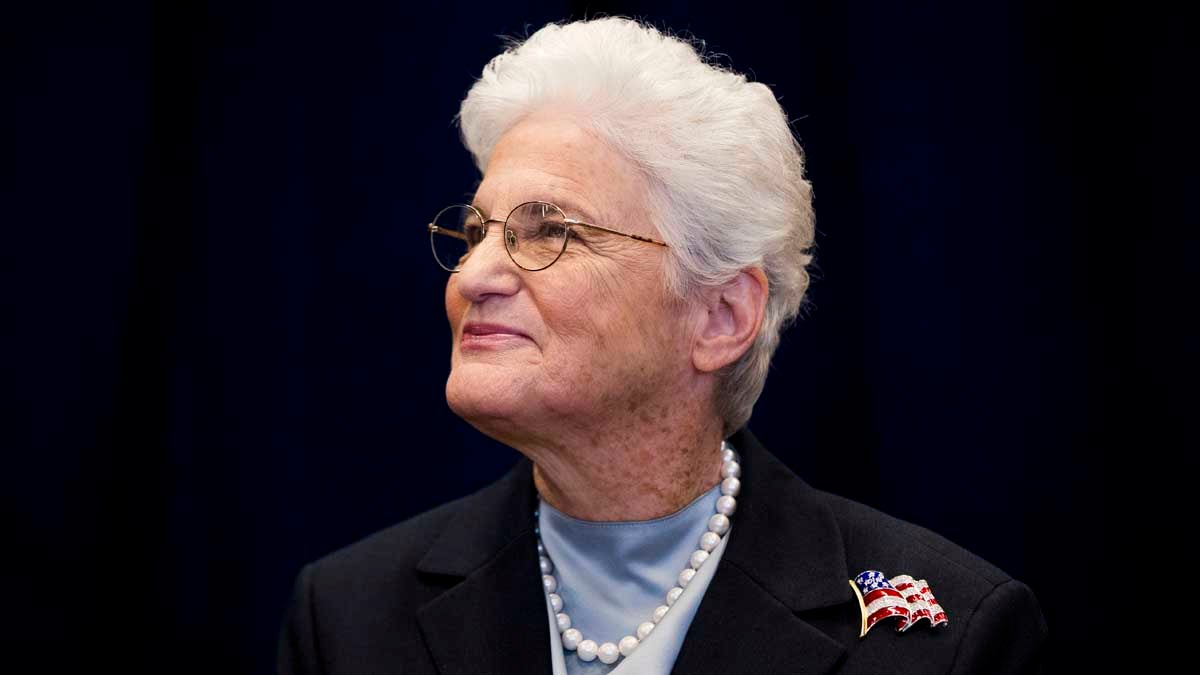Abraham challenges rivals to reject super PACs

Lynne Abraham has challenged her rivals in the Philadelphia mayoral contest to sign a "people's pledge" rejecting independent expenditure groups. (AP file photo)
On the day that a labor-supported Super PAC emerged to support former Philadelphia City Councilman Jim Kenney for mayor, former District Attorney Lynne Abraham Wednesday challenged her rivals in the contest to sign a “people’s pledge” rejecting independent expenditure groups.
Abraham said outside groups that can raise and spend unlimited sums on Philadelphia elections undermine the reforms that imposed limits on city campaign contributions.
“The whole idea was to eliminate ‘pay to play’ and their corrosive influences on the electoral process,” Abraham said in a phone interview. “It cheats voters and candidates out of their ability to reach people on a level playing field.”
Building a Better Pennsylvania, the group supporting Kenney, is backed by area labor unions. Electricians Local 98 contributed nearly two-thirds of the money the group raised last year. Meanwhile, three pro-school choice executives have committed $250,000 to an independent expenditure committee that will back state Sen. Anthony Williams for mayor.
Abraham said her proposed Philadelphia’s People’s Pledge was modelled on the pledge current U.S. Sen. Elizabeth Warren and former Sen. Scott Brown agreed to in their Massachusetts 2012 race, which is credited with reducing the impact of outside money in the contest.
The pledge condemns outside spending and commits candidates to contribute sums to the school district equal to the value of any advertising an outside group purchases to promote their candidacies.
Not surprisingly, the two candidates who stand to benefit from independent expenditure groups rejected Abraham’s challenge. Two others, Doug Oliver and Nelson Diaz, joined in Abraham’s critique in prepared statements, but declined to sign the pledge she proposed.
The super PAC TV ad for Kenney marks a first in a Philadelphia mayor’s race. City Ethics Board Executive Director Shane Creamer said it was clear independent expenditure groups would play a role in this election.
“They’re certainly entitled to do so. It’s their lawful right to engage in political speech,” Creamer said in a phone interview. “But they have to play by the rules every other political committee has to play by, and that means they have to disclose all the information about their contributions and all their expenditures, and the public will be able to see that.”
The groups supporting Kenney and Williams for mayor will have to disclose their contributors, but Philadelphia 3.0, a group planning to support City Council candidates, has chosen to organize as a nonprofit corporation so it can conceal its donors, creating what critics call “dark money.”
WHYY is your source for fact-based, in-depth journalism and information. As a nonprofit organization, we rely on financial support from readers like you. Please give today.


